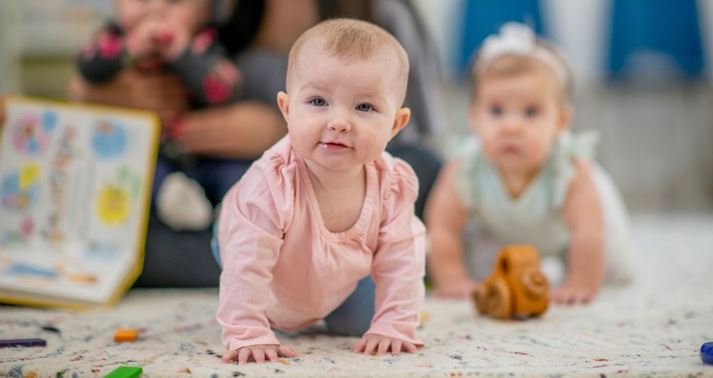How Early Learning Services Can Prepare for the 2026 NQS Child Safety Standards
27 October, 2025

From 1 January 2026, the National Quality Standard (NQS) will be refined to give child safety even greater prominence. These changes affect Quality Area 2 (Children’s Health and Safety) and Quality Area 7 (Governance and Leadership). For early learning leaders, it means preparing staff, policies and governance frameworks so that child safety is not just a compliance requirement, but part of the everyday culture across the service.
At McArthur, we have partnered with early learning services and centres for more than 35 years, providing workforce expertise and long-term advisory support on compliance, governance and best practice. As one of Australia’s most experienced recruitment and HR partners in Early Childhood Education, we know that changes to the National Quality Framework (NQF) and the National Quality Standard (NQS) are most effective when services are equipped to translate them into daily practice.
Understanding the 2026 NQS Child Safety Changes in Early Learning
The 2026 refinements are designed to make child safety explicit within the NQS. While child protection has always been a core principle, these changes place greater emphasis on accountability at every level — from frontline educators to service governance.
This signals to services that compliance will be judged not only on whether policies exist but also on whether they are actively implemented, monitored and demonstrated during quality assessment and rating.
NQS Quality Area 2: Child Safety and Protection Requirements for 2026
From January 2026, Element 2.2.3 will change to Child Safety and Protection. Services will be required to demonstrate that:
- All staff are aware of their roles and responsibilities regarding child safety.
- Every child at risk of abuse or neglect is identified and responded to appropriately.
For early learning services, this means ensuring that child protection obligations are clear to all educators and consistently reinforced in practice.
NQS Quality Area 7: Governance and Leadership with a Child Safety Focus
Quality Area 7 will also be strengthened to explicitly reference child safety. Under the new wording:
- Governance must support the operation of a service that is child safe by design.
- Policies and systems must be well-documented, reviewed regularly and developed in partnership with staff and families.
- Leadership must demonstrate how child safety is integrated into decision-making and service culture.
For centre directors and leaders, this requires moving beyond compliance to show that governance frameworks actively enable safe, ethical and accountable practices.
What the 2026 NQS Child Safety Refinements Mean for Your Service
For services, the refinements represent an opportunity to strengthen both compliance and culture. Leaders will need to provide evidence that:
- Staff are confident in their child safety responsibilities.
- Governance structures actively support child protection.
- Families are engaged in conversations about safety and trust the service’s approach.
- Documentation and reporting demonstrate proactive risk management.
ACECQA Guide to the NQF: Updated Support for Child Safety and Online Safety
The Guide to the NQF is one of the most important resources for services preparing for these refinements. ACECQA has confirmed that the guide will be updated in 2026 to reflect the new requirements for Quality Areas 2 and 7.
These updates will provide:
- Additional examples of how services can demonstrate their child safe practices during assessment and rating.
- Practical guidance on embedding child safety into both policies and everyday practice.
- New content to support children’s online safety, ensuring digital environments are also considered part of a child safe service.
Incorporating the Guide to the NQF into your review process will help demonstrate readiness and reassure families and regulators that your service is committed to excellence in child safety.
Preparing for the 2026 NQS Child Safety Standards with McArthur
The refinements to the NQS highlight that child safety is not simply a compliance task, it is the foundation of quality in early learning. By preparing early, updating policies and engaging your workforce, your service can move confidently into 2026 with a strong child safe culture.
Steps for Early Learning Leaders to Prepare for 2026
Drawing on our national experience, McArthur recommends that early learning leaders:
- Review policies and procedures. Update them to reflect the new NQS wording and ensure reporting and protection obligations are clear.
- Engage your educators. Involve staff in policy development to build understanding and ownership.
- Strengthen governance practices. Make child safety a regular agenda item in leadership and family engagement.
- Document practice. Keep records of staff training, incident management and policy reviews for quality assessment.
- Partner with sector experts. Work with McArthur to align workforce, compliance and governance strategies in preparation for 2026.
McArthur’s Early Childhood Education consultants are here to help. We work with centres nationwide to align workforce practices and support compliance strategies. Contact McArthur today to prepare your educators and support staff for the 2026 NQS child safety standards with confidence.
FAQs on the 2026 NQS Child Safety Standards
What is changing in the NQS in 2026?
From January 2026, refinements will be made to Quality Area 2 (Children’s Health and Safety) and Quality Area 7 (Governance and Leadership). These updates explicitly reference child safety, requiring services to show clear evidence of child protection practices and governance.
What will be required in Quality Area 2 under the new rules?
Element 2.2.3 will become Child Safety and Protection. All educators and staff must understand their child protection responsibilities and demonstrate how they identify and respond to children at risk of abuse or neglect.
What will be required in Quality Area 7 under the new rules?
Governance and leadership must show that child safety is embedded in policies, systems and culture. Services will need to provide evidence that governance actively supports a child safe environment, with policies reviewed regularly and developed with staff and families.
How can services prepare for the 2026 NQS refinements?
Services should update policies, involve educators in policy development, strengthen governance practices, document staff training and reviews, and consult with families. Working with partners such as McArthur helps align workforce practices with compliance priorities.
How does McArthur support services with the 2026 NQS child safety standards?
McArthur works with centres nationwide to support compliance strategies and provide workforce solutions that align with child safe practices. Our consultants offer advisory support so services can demonstrate compliance with confidence.
Share this Article
Related Articles
McArthur’s Commitment to Child Safety, Workforce Compliance and NQF Excellence
For over 35 years, McArthur has partnered with early learning services across Australia to deliver workforce solutions that strengthen child safety, NQF compliance and staffing quality. Discover how we continue to support centres in meeting the 2025 and 2026 reforms with confidence.
Learn MoreHow Early Learning Services Can Prepare for the 2026 NQS Child Safety Standards
The NQS will be refined in 2026 to place stronger emphasis on child safety in early learning. Learn what’s changing in Quality Areas 2 and 7, how services can prepare, and how McArthur partners with centres to build a confident, compliant child safe culture.
Learn MoreNQF Vaping Ban 2025: How Early Learning Services Can Build Smoke-Free Environments
The NQF vaping ban takes effect in September 2025, requiring early learning services to be smoke-free and vape-free. Learn what this means for leaders, how to build a positive workplace culture, and how McArthur supports centres with workforce and compliance solutions.
Learn MoreChild Safety and NQF Mandatory Reporting 2025: Understanding the 24-Hour Reporting Rule
The NQF is introducing a stricter 24-hour mandatory reporting rule for early learning services from September 2025. Understand what this change means, why it matters for child safety, and how McArthur supports centres to meet compliance with confidence.
Learn More



